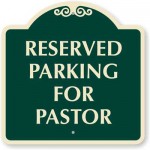Don’t confuse a leader with a leader
The church has a leadership problem. There are well-trained, educated, articulate, and organized people who are often recognized as leaders among the church. There’s just one problem: these may not be the real leaders among the church. Oh, they’re making decisions and making plans and casting visions… but, according to Scripture, is that what leading among the church is all about? I don’t think so… and someone else agrees with me.
Who? Well, for one, Arthur at “The Voice of One Crying Out in Suburbia” agrees according to his post “A Lack of Leadership.”
In his post, Arthur writes:
I am also not saying we don’t have any leaders in the church at all. We certainly do! What we lack is a recognition of people who are actually leading in the church through the Biblical means of service and example in favor of focusing on people based on position and title.Those are the leaders, the people who live and love as Christ lived and loved as best they can. It is the example of your life, the way you live, that makes you a leader.
The church is full of leaders and those leaders rarely if ever make demands of deference to their supposed “authority”. Say what you like and dress it up all you want in religious jargon but someone who is more concerned with people “submitting to their authority” than they are with serving people in humility and love is not a leader in any Biblical sense.More pointedly, the more you have to remind people that you are a leader, the less of a leader you really are.
Think about what Arthur is saying. Among most church organizations, there are positions of leadership, and people are placed in those positions of leadership, and those people perform certain functions and duties based on their particular positions of leadership.
But, that’s not the kind of leading that we find in Scripture. In Scripture, serving is leading, and leading is serving. I’m not talking about “servant-leadership.” I’m talking about serving – actually serving other people. The real leaders are the ones who are serving others.
If we follow the example or teaching of people based on their position of leadership, then we are not following leaders as described in Scripture.
Instead, according to Scripture, we follow the example of people’s lives as we see them serving others. This is leadership, and the proper response to this scriptural leadership is to serve others as well… to see others serve and then to follow their example.
Mutual edification brings out the Christ in one another
I’ve been studying mutual edification for several years now. My friends and I have sought to build up (edify) one another whenever we’re together. A few days ago, I saw a description of “mutual edification” that perfectly explains what it’s all about.
That description came from Nathan at “Joined to Him” in his post “A Study on Mutual Edification – Part 2.”
In his post, he comments on Hebrews 10:24-25 (one of my own favorite passages in Scripture referring to mutual edification). At one point, Nathan writes this about the 2nd half of Hebrews 10:24:
The second part of the verse reveals that we need to consider our brothers and sisters in a way that will allow us to stir them up towards love and good works. This shows us some of the purposes behind mutual edification. We mutually edify one another so that we may all grow in love and good deeds. Love and good works were a signature of the life and ministry of Christ. So mutual edification brings out the Christ in one another.
When you think about it, this makes perfect sense. Of course, the Holy Spirit (the Spirit of Christ) is the good within us. We only love by the Spirit. So, any “love and good works” that are “stirred up” by us are actually the work of the Spirit. Our goal, then, is to help people follow the guidance of the Spirit who is already indwelling them and leading them. (Of course, this is very similar to what I talked about in my series last week on the topic “Defining discipleship as helping each other follow Jesus.”)
This also helps us understand why the author of Hebrews puts so much emphasis on “encouragement” throughout this letter, using the noun or verb form several times. He understand that as we understand each other, we are “stirring up” or arousing a desire within each follower of Jesus Christ to yield to that indwelling Spirit.
We don’t have to create “love and good works” for people. We don’t have to tell them what to do or say or believe. The Spirit of Jesus within them is already telling them everything they need to know.
So, what do we do to “stir up love and good works”? We consider how we can encourage them to listen to and obey what Jesus is already telling them. As we all listen to and obey what Jesus is telling us, we will mutually edify one another.
And, as Nathan says, as we mutually edify one another, it brings out the Christ in each of us.
He invites us to live side by side as a family
Kathleen at “Church in a Circle” has written a great post called “Community is irresistible.” The post is not very long, so I would encourage you to read it now. (And, as far as I can tell, she actually spells all of the words correctly, which is amazing for an Aussie.)
Kathleen begins her post lamenting the lack of community among the church and the wider society today. Even though we were designed for community, we seldom find it today. As she said, “Facebook is as good as it gets for many people.”
But, what can we do? She answers that question like this:
He [God] invites us to live side by side as a family, meeting each other’s needs through the seasons of life. If we are going to tap into the full potential for the church to shine in the darkness of this disconnected, dysfunctional world, we need to start meeting face-to-face, engaging in a two-way conversation, growing in strong relationships with each other and accepting one another as Jesus accepted each of us.
We were not designed to be fellow-attenders; we were designed to be family. We were not designed to live disconnected lives; we were designed to share our lives with one another.
But, today – at least in my “neck of the woods” – this kind of community is very unnatural. It was quite natural only a few years ago (as in a couple of generations ago), and it mostly centered on extended family and neighbors who lived close to one another for many, many years.
So, what do we do? Exactly what Kathleen says above. We must intentionally invite people into our lives, and we must intentionally be interested in other people when they are willing to share their lives with us. We must be patient… and wait… and wait… and wait more… trusting that God will bind our hearts and lives together. And, while we are waiting, we must continuously and consistently have interactions with one another like Kathleen describes above: “meeting face-to-face, engaging in a two-way conversation, growing in strong relationships with each other and accepting one another as Jesus accepted each of us.”
We can’t sit alone in our living rooms and expect community to suddenly spring up out of nothing.
We will have to beging by being acquaintances and listening to others around us. When the time is right, we’ll be invited and even encouraged to speak into their lives – when we show that we care and that we can be trusted. But, again, that will only happen when we are intentional to offer our time and energy and lives to others… and allow them to accept as much or as little as they will.
As I said above, and as I’ve written previously, community is unnatural today. But, when we are living super-natural lives and intentionally giving God opportunities to bind our lives with others (or, as another blogger wrote recently, “entangling our lives together”) then we will find God building community in our midst – a community based on Jesus Christ.
You know how we lived among you…
Over the last couple of years, I’ve come to appreciate Paul’s two letters to the believers in Thessalonica: 1 Thessalonians and 2 Thessalonians. Why? Because even though Paul was only in Thessalonica for a few weeks (perhaps only 2-3 weeks), in those letters he was able to point them back to the way he and those with him lived among them as an example for them to emulate.
In fact, the title of this post comes from the NIV translation of the end of 1 Thessalonians 1:5 – “You know how we lived among you for your sake.” The ESV translates it like this: “You know what kind of men we proved to be among you for your sake.” [A literal translation would be something like this: “You know what manner [of men/people] we were among you for you.”
In other words, Paul is pointing the readers of his letter (in Thessalonica) back to the example that he and others set while they lived among them. A real, living example was very important for Paul and others in the New Testament.
I thought about this passage (and the importance of example) recently when I read a post by Christopher at “Life With Da Man CD” called “Take For Example…” (By the way, please take the time to read Christopher’s whole post. It’s well worth it, and I can’t do it justice in this short post.)
At one point, when thinking about Bible studies that he’s been part of, Christopher wrote this:
It reminded me of some Bible class experiences I had a long time ago. The nature of the studies required answering questions from a booklet covering 13 weeks of lessons on a given topic.
Some of the questions asked in the week’s lesson would nudge towards the students giving answers based on personal experiences. What would tend to happen at that point, is that people would give generic answers. Nothing specific, mostly seeking to insert some scriptures to reinforce familiar concepts. Little, if anything in the way of real life experiences.
Have you noticed this also? Is there a lack of teaching by example among the church today? If so, why do you think that is?
Can you think of time when someone taught you something about God (a spiritual lesson, I guess) by example? Have you ever learned something by observing someone’s life?
Deconstructing… to see the kingdom of God increase?
When it comes to the church – and especially when it comes to moving away from a more institutional/organizational approach to church and moving toward a more organic/simple approach to church – it seems that deconstruction is a necessary first step. As many have found, it can be a difficult and painful first step, but an important one all the same.
Two of my favorite bloggers have (or will) write about this kind of deconstruction…
Eric at “A Pilgrim’s Progress” recently completed his 10 part series and summarized it in a post called “Series Summary: Ten Church Structures That Hinder Disciple Making.” He introduces his summary like this:
Discipleship ought to be alive and well within the church. However, several time-honored church traditions act as roadblocks when it comes to discipleship. Many of these are so familiar that they are not questioned.
Similarly, Miguel at “God Directed Deviations” is just beginning a new series with a blog post called “I Don’t Want To Be That Guy Who’s Pegged As Anti-Church, But…” In this introductory post, he writes:
Anything that impedes The Gospel, detracts from Making Disciples, or moves in a direction that is Contra-Kingdom has got to be shattered. I do understand though, that the speed or manner by which any institution or system is shifted away from the actions or attitudes that cause those things will differ depending on context, culture, and willingness. Likewise, I understand that the time frame in which a local body becomes self-aware on those issues will vary.
I’ve been through this process – and in some ways, I’m still going through it and probably always will be going through it. The most difficult part is that relationships are often fractured because of differences (and growing differences) in the way people understand and live as the church.
I think this is probably caused by what Miguel refers to as the differences which depend “on context, culture, and willingness” and the “time frame” in which both a local body and individuals take these steps of change (or don’t take these steps of change).
If you’ve been following my blog over the last couple of weeks, you know that I’ve been writing about two related topics: “real relational unity” and “community hermeneutics.” Of course, this concept and process of “deconstruction” is strongly related to both unity and community hermeneutic/interpretation.
So, while thinking about deconstructing our church traditions, organizations, institutions, etc. in order to see the kingdom of God increase (the title of this post), a question kept running through my mind…
Knowing that people grow and change at different rates, how do we change structures that affect us as a group (when we are not at the same place as a group) without breaking those important relationships (i.e., maintaining unity)?
You are now the pastor
I really appreciate a recent post by Roger at “SimpleChurch Journal” called “Appointed as Senior Pastor: the Best thing that Ever Happened to Me.” You may be thinking that’s a weird quote for someone who publishes a site called “SimpleChurch Journal,” but you’ll understand when you read it.
To begin, Roger recalls a time when he was actually appointed as senior pastor by a church. This appointment changed the way that he thought about himself. He writes:
One of the benefits that occurred when I accepted the role of ‘senior pastor’ is that I was expected to fully engage in ministry. The result was that I challenged myself to overcome my insecurities, doubts, and other lack of faith in order to step fully into my place as a functional minister. I was forced to see myself, as God sees all of us, as one called to “show forth the goodness of God” by exercising spiritual gifts that are “given to all” in order to “do the work of ministry.”
When Roger was appointed as a senior pastor, he realized that God desired for him to use his spiritual gifts to serve others. He realized that in spite of his weaknesses, God could use him in the life of others.
And, now, he understands that God desires the same thing for ALL of his children… not just those who have been appointed as pastors.
Roger writes:
Because I was given this position, I pushed past my insecurities and doubts about who I was and whether or not I was capable and gifted and was forced to accept that I was called to step into ministry functions. So, I just did it.
My concern is that too many times we do NOT push past our insecurities and doubts about who we are in order to step into our role as a minister, a shepherd, an apostle, a teacher, a helper, an evangelist, an encourager, or a prophet. The result is that the world does not see Christ as He is meant to be seen—through every member of His Body fully functioning with confidence in all that we have been called to do.
Of course, one of the reasons that all of us don’t see ourselves as ministers/servants like this is because we see certain people as special ministers/servants (i.e., the “pastors” – or whatever other title we might use for them).
While we all serve in different ways, we are all servants/ministers. We are all “pastors.” If we see ourselves as pastors, then perhaps we will also recognize that we (all of us who follow Jesus) have the privilege and responsibility of serving one another and others in Jesus’ name.
Putting the “community” in community hermeneutics
Over the last few years, I’ve written several posts on the topic of “community hermeneutics.” (For a few examples, see my posts “Toward Mutual Hermeneutics,” “Listening to One Another,” “The First Interpreters,” and “Those pesky Bereans.”) If you’ve never heard the term before, “community hermeneutics” refers to interpreting and applying Scripture together in community with one another.
If you pushed me into a corner… ok, even if you didn’t push me into a corner… I’d say that the lack of community hermeneutics is one of the reasons that the church is in the mess that it’s in today. Our reliance on certain people to interpret Scripture for us – not only to tell us what it means but to tell us how to apply it – is one of the causes (perhaps a main cause) of continued immaturity among the church.
My good friend Maël from “The Adventures of Maël & Cindy” has recently started a series on “community heremeutics” using the German term gemeindetheologie. His first post is called “GEMEINDETHEOLOGIE: Who & How? – An Introduction.”
At one point, Maël writes this:
As Thiselton claims: “All the major traditions of the Christian church formally define doctrine in communal terms, although the emphasis and nature of the community in question varies.” [Anthony C. Thiselton, The Hermeneutics of Doctrine (Grand Rapids: Eerdmans, 2007), xviii] For example, in the Catholic tradition, the hermeneutical community is embodied in the bishops that constitute the Magisterium, while in some Anabaptist traditions, the hermeneutical community is embodied by all the believers in the local congregation.
I think Maël makes a good point here (or actually, Thiselton makes a good point, and Maël expands on it). In almost all Christian groups, hermeneutics is a community task. The question is: who is included in that community who is allowed to interpret Scripture for others?
Instead of going into all the different options, I’d like to make a case for interpretation and application being the responsibility and privilege of all followers of Jesus Christ, not just a subset. Why do I think all Christians should (and must) be involved in hermeneutics?
1. Because all Christians are indwelled by the Holy Spirit who is the one who reveals and provides understanding.
Does that mean that we always listen to him and always respond properly and always interpret what God reveals (either through Scripture or through other means)? Of course not. And, that leads to the second reason…
2. Because all Christians need others to help them understand what the Spirit is revealing to them… all Christians… even the experts.
Add to this the fact that interpretation of Scripture is not usually about TELLING what it means as much as it is about SHOWING what it means. And, the “showing” happens best in community as well.
I’ve been part of a group who practices community hermeneutics (that includes the WHOLE community and not a subset of the community) for several years now. In years of schooling, I probably have more theological education than anyone else who is part of that community. But, because we interpret and apply Scripture together, I’m also able to learn from my brothers and sisters in Christ… even from my youngest brother or sister in Christ.
You may be part of a church organization that does not practice community hermeneutics. Perhaps your denomination or your local church leaders tell you what Scripture means and how you should apply it. May I suggest that you can still practice community hermeneutics? It’s true. Gather together with some friends and begin working through Scripture and through life together.
You’ll be surprised at the difference that it makes…
An exercise in generalizations and criticisms among the church
A couple of weeks ago, I published a post called “Dealing with generalizations and the church.” There were several really good comments on that post as readers thought through how we should deal with generalizations.
Well, thanks to an article published by “Leadership Journal” called “Why I Won’t Give to Your Church,” the church now has the chance to deal with generalizations in a real and public way. And, for the most part, I’d say many are not dealing very well…
(By the way, HT to Randy at “Bible Study Geek” for pointing us to this article in his post “Jewe: Why I Won’t Give to Your Church.”)
I encourage you to read the article and the comments. (There are 25 comments at the time that I’m writing this post.)
Whether you agree with the article’s author or not, once thing is clear: Very few of the commenters are interested in listening to him or his concerns.
Could he have written this article in a way that would be more palatable? Perhaps. But, that’s a completely different issue. The question here – again – is how do we deal with generalizations among the church.
Obviously, this author makes several generalizations, both about churches and about people his age. How should someone respond to these generalizations? What about someone who agrees with the author? What about someone who disagrees with the author? What if someone knows of instances that do not match the generalizations?
You see, I think the way we treat people often says more than what we actually say to them. And, unfortunately, I think many of the commenters are speaking loudly…
So, let’s pretend that you actually know the young man who wrote this article. 1) Assume that you disagree with his generalizations. How would you respond to him? 2) Assume that you agree with his generalizations. How would you respond to him?
(By the way, if you want to discuss the content of the article, that’s fine too. But, I’m really interested in thinking through dealing with generalizations and criticisms, both when we agree with them and when we disagree with them.)
Asking people to vote on their preferences for heaven or hell
I’ve read several very good posts lately on the topic of discipleship – i.e., helping one another follow Jesus Christ.
One of the best has been a post by Keith at “subversive1” called “How to Make Disciples: Part 1 – The Problem.”
There are several great things about Keith’s post. He begins by discussing what it means to be a disciple of Jesus and suggests that many today have confused making disciples with making converts.
At one point, Keith makes this statement:
I believe the main reason for this phenomenon is simple; Christians are largely concerned with making converts. In other words, it starts with the way we understand (or misunderstand) the Gospel and then flows into the way we evangelize.
Most Christians today understand the Gospel as simply saying a prayer so that you can go to heaven when you die. This isn’t the Gospel. It is a simplistic element of the larger doctrine of the Atonement, but it’s not the Gospel.
Growing up, I remember that choosing between heaven and hell was a huge part of “presenting the gospel.” I’m sure we’ve all heard the “fire and brimstone” preacher who warns, “You don’t want to go to hell, do you?” Why, even a few years ago, I was taught to start sharing the good news by asking, “Why should God let you into heaven?”
Not too long ago, while study the Gospel of Matthew together with the church, I noticed something interesting. Jesus didn’t invite people to follow him by asking them to choose between heaven and hell. Yes, he talked about eternal life, and he talked about eternal death… but wasn’t that usually after someone was following him?
What about in Acts? Are there examples of any believers inviting people to believe in Jesus so they would go to heaven and wouldn’t go to hell? I can’t think of any… but I could have forgotten something.
In the epistles, it’s a little more difficult. These were all written to believers. But, even when Paul, Peter, James, Jude, etc. wrote about the gospel, I don’t remember them encouraging people to proclaim a choice between heaven and hell.
So, where did this come from? I honestly don’t know.
But, here’s my big question… if we don’t invite people to choose between heaven and hell, what do we invite them to? I think the answer is fairly obvious, but I’m wondering how you would answer that question?
Church as people who find themselves entangled in each other’s lives
Occasionally, I come across a phrase or description that either captures my attention or nicely describes my own thoughts about a subject. This happened last weekend when I read a post called “Family, Fellowship and Friendship” from Christopher at “Life With Da Man CD.”
By the way, if you’re not following Christopher’s blog, you really should. I love the questions that he asks and the stories that he tells from his own life and his own struggles at sharing his life with his brothers and sisters in Christ.
Anyway, in Christopher’s post, this phrase (and then the description that followed) captured my attention:
Church at its best is when a group of people who otherwise have no reason to be together, find themselves entangled in each other’s lives as they are now members of the family of God.
That family is not just a nominal one. It’s a messy one. It’s one with all sorts of oddballs. It’s one with varying types of challenges which often come up when such a diversity of characters meet. Yet in that all, the family is one marked by commitment to fellowship and friendship.
I love the concept of the church as people who find themselves entangled in each other’s lives. Of course, as Christopher points out, it is God (and our identity as the family of God) that entangles us together, but from our perspective, it may seem weird that we’re together.
Here’s the problem, though. Many times today, people CAN point to something that holds them together, whether it’s a certain location, a certain creed or confession, a certain organizational structure, a certain program, a certain leader, etc. We should not be held together by any of these things (or anything other than our mutual relationship with Jesus Christ).
But, as Christopher points out, there’s something special and different about a group of people who find themselves divinely “entangled” with one another, especially when there’s no other good reason for those people to associate with one another. Our lives are messy; we’re oddballs and often at odds with one another; we’re challenging to be around… but we can’t get enough of one another.
Why? Because we constantly point each other to Jesus Christ… constantly remind each other of the grace we have in Jesus Christ… and constantly encourage each other to follow Jesus.
Yes. I love that description of the church as those who find themselves (divinely or spiritually) entangled in each other’s lives. But, more than I love the description, I love that I get to live that kind of life every day.










